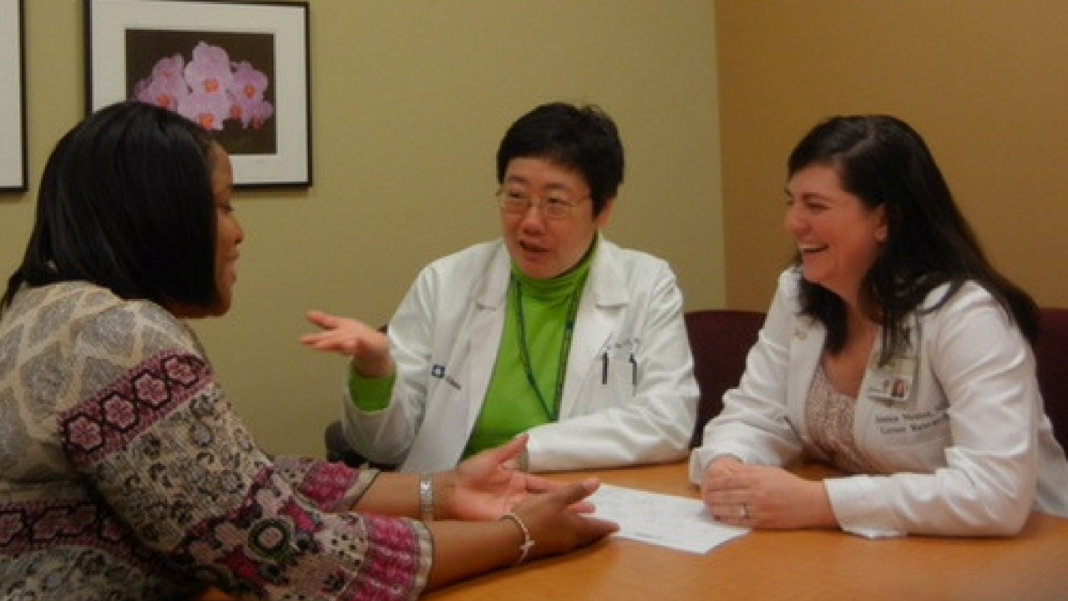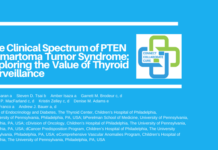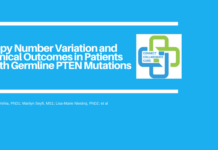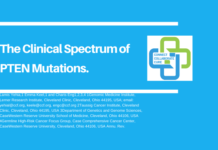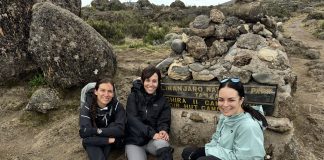PASSIONATE ABOUT SCIENCE AND MEDICINE FROM AN EARLY AGE
I’ve always wanted to be a doctor, to help people, ever since consciousness. When I was four years old, I knew I wanted to be a scientist. I was inspired by my uncle who became the chair of medicine in Singapore, where I was born, and the prime minister’s physician. Somehow, even at 4, I saw that science drove the evidence for medicine. In the 4th grade, I took a class which included the world’s top medical science discoveries. We were reading about Louis Pasteur, van Leeuwenhoek…
When I was in the 7th grade, my father was sent on a scholarship to do his PhD at the University of Chicago, so we all went, as I am an only child. There, I attended the University of Chicago Laboratory Schools, an inspirational school with inspirational teachers. We had a 10th grade advanced biology teacher whose passion was genetics. He loved it! You could clearly see that. In his spare time, he taught cancer education.
It was then that I said, “I’m going to put cancer and genetics together.” This passion for science and medicine, in the fields of cancer and genetics, led to my current role as the inaugural Chairwoman of the Genomic Medicine Institute and founding Director of its Center for Personalized Genetic Healthcare at Cleveland Clinic’s Lerner Research Institute.
MULTIDISCIPLINARY PRECISION CARE for PTEN PATIENTS
I have dedicated my career to identifying genes associated with inherited cancers through patient-focused research, with discovery of PTEN germline mutations in Cowden Syndrome patients in 1997. My 20+ year research on PTEN has formed the basis for evidence-based clinical care. As such, I serve as Medical Director of the Cleveland Clinic Cowden/PTEN Multidisciplinary Clinic, the only one of its kind in the world.
We look after patients by gene and the gene pathways, rather than by isolated clinical diagnosis. Irrespective of clinical diagnosis, if a patient has a PTEN mutation, he/she is looked after under our one multidisciplinary roof.
In other words, this is PTEN-informed precision care. Since its inception in 2005, hundreds of patients and families have been referred to our PTEN multidisciplinary clinic from across the globe. We put patients and their families first by ensuring timely patient appointments are coordinated with the appropriate specialists, knowledgeable in PTEN, throughout Cleveland Clinic, including breast specialists, endocrinologists, neurologists, gastroenterologists, psychologists, etc.
PATIENTS PLAY AN IMPORTANT ROLE IN RESEARCH DISCOVERIES
Research obtains vital evidence on which the best medicine is practiced. I always wanted to hunt for genes associated with hamartoma syndromes, ever since I was a medical student. I knew then that I had to act to put my high school thoughts of the fields of cancer and genetics together. But, at that time, there were no formal training programs in cancer genetics for both research and clinical care. I therefore sought this unique training at the University of Cambridge, UK, returning to Boston thereafter, to begin my first independent position. My Cowden syndrome patients and families quickly volunteered for my research to look for their gene, and that was PTEN.  Thus, my research goals have been gene-informed diagnosis, prediction of cancer and other clinical risks for accurate genetic counseling, so as to tailor high-risk care, early detection and prevention strategies for the patient and family.
With our first research findings, we were able to give back research-informed clinical care to all the patients who participated in our research and to many others around the world. Realizing that recognition of our patients so they may be referred to expert care was a common issue, we then focused on our patient-research participants to come up with the PTEN Cleveland Clinic Score, a clinical assessment tool that estimates the probability of having a PTEN mutation, after a decade-long study. This score is based on straightforward clinical features which any caregiver can enter, with a resulting score over 10 suggesting referral for expert evaluation.
By prospectively following our group of patient-research participants, we were, for the first time, able to delineate the age-associated and lifetime cancer risks for PHTS, encompassing those of the breast, thyroid, endometrial, colon and skin. We immediately began to reach out to our research participants and patients to inform them of our new findings so that their care would be enhanced. Thus, our model of from the clinic to the laboratory, and back again to clinical practice, has been successful and we will continue this effective strategy.
As such, PTEN Hamartoma Tumor Syndrome (PHTS) patients and families just like you have inspired and facilitated these research discoveries because of their decision to participate in research.
Current ongoing studies include:
- research about patients with PTEN mutations with and without ASD, which combines clinical patient information with DNA, RNA and protein studies of PTEN and related pathways to better understand molecular, brain and behavioral differences and their development;
- parallel study asking what is the switch that dictates how/why a PHTS individual has ASD, cancers or both;
- our 20-year strong PHTS study on cancer risk;
- an examination of the gut and oral microbiome (bacteria) in patients with PTEN mutations to determine whether there is an association with outcomes, specifically as cancer and ASD; and
- a pilot clinical trial of everolimus for individuals with PTEN-ASD.
TOWARD BETTER MEDICAL CARE
Our ability to care for and study PHTS patients helps us to move toward better medical care.
For this reason, I am excited to be working with the PTEN Hamartoma Tumor Syndrome Foundation to plan a first-of-its-kind, international, patient-centered meeting on March 25-26, 2018, in Hunstville, Alabama. I, along with several of my colleagues, will be speaking on topics ranging from PHTS cancer risks and clinical screening recommendations, daily management of autism and developmental delays, and current research studies for PHTS patients. As a patient-focused meeting, it will be a tremendous opportunity for you to not only learn more but also to connect with others with PHTS. I hope to see you there!
By:  Charis Eng, MD, PhD, FACP, Cleveland Clinic


